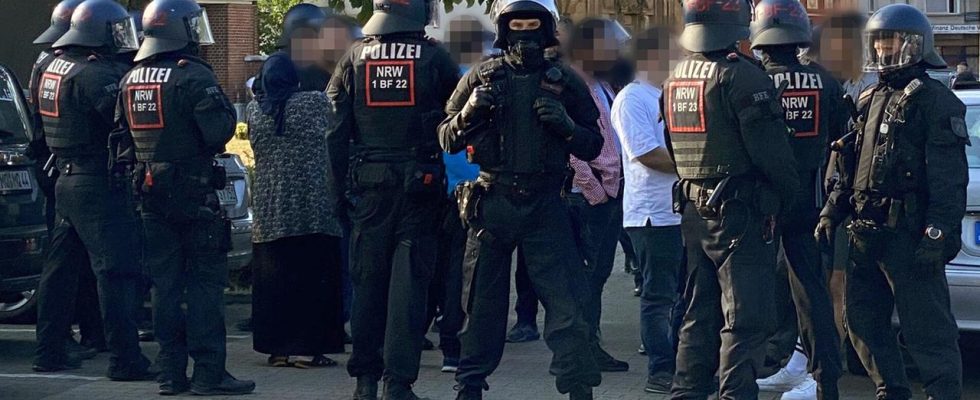Street fighting between Lebanese and Syrians has rocked Castrop-Rauxel and Essen. Now the focus is on the work of the police and integration policy.
Clashes between Syrians and Lebanese have been keeping the Ruhr area in suspense for about a week, with several injured. Street fighting broke out last Thursday in Castrop-Rauxel, and the following day hundreds of men clashed in Essen. Lebanese attacked a Syrian restaurant.
Groups of men march in videos on social networks and want to demonstrate their power – Wisam also keeps coming across such videos. He lives in Essen and is Syrian himself, but was not involved in the clashes.
When his mother in Damascus saw the videos of the riots in his new hometown of Essen, she worriedly asked her son if everything was okay. In the civil war in Syria, she worries about the safety of her son in North Rhine-Westphalia.
No arrests yet
Wisam would like the perpetrators to be arrested and punished: “That would be a signal for those affected that the rule of law is working in Germany.”
In fact, however, the Essen police have to admit that there has not been a single arrest after the riots. First, the emergency services have to calm the situation and end the tumult, says police spokesman Pascal Pettinato. In Essen, four police officers were injured: “The law enforcement is a bit behind.” In the meantime, however, the video material of the riots is being evaluated in order to identify the perpetrators.
Around the riots, the officials in North Rhine-Westphalia carried out identity checks, which prove that mainly Lebanese and Syrians were involved. The police were able to seize numerous weapons – machetes, striking tools and a submachine gun.
The trigger was an argument between eleven-year-olds
Whether there is a direct connection between the incidents in both cities is still being investigated. According to the competent public prosecutor’s office in Dortmund, the trigger for the mass brawl in Castrop-Rauxel was a dispute between two eleven-year-olds.
The Islamic scholar and clan expert Ralph Ghadban suspects that clan disputes are behind it. What is new about these cases is that Syrians have organized themselves to such an extent “that they dare to fight established clans,” said Ghadban in the daily topics.
Reul still sees progress
In Germany, nobody has put the fight against clan crime as prominently on the political agenda as Herbert Reul, the interior minister of North Rhine-Westphalia. Are the riots in Essen and Castrop-Rauxel also a failure of his efforts? The CDU politician doesn’t want to know anything about it. “Politicians slept for 30 years, nobody cared,” Reul hurled at the journalists. He himself has been Minister of the Interior since 2017. “To say nothing moved is real quark.”
In addition to police work, integration policy is also coming into focus. Ghadban believes that too little attention has been paid to the socio-cultural background of migrants. Some immigrants bring a community spirit with them from their home countries. But you can only integrate individuals, not groups, says Ghadban. Foreclosure in groups makes integration “extremely difficult”. Integration courses are a first measure, but not enough.
“People need to come together”
Wisam, the young Syrian from Essen, understands the frustration of the Lebanese living in Germany. Unlike the Syrian refugees, the Lebanese lived here for a long time with no clear prospect of staying: “The conditions for the Syrians were a hundred times better.”
He believes that the tensions between the two groups can only be reduced through personal encounters. “People have to come together – through cultural offerings, through sport – so that they see each other as people.”

